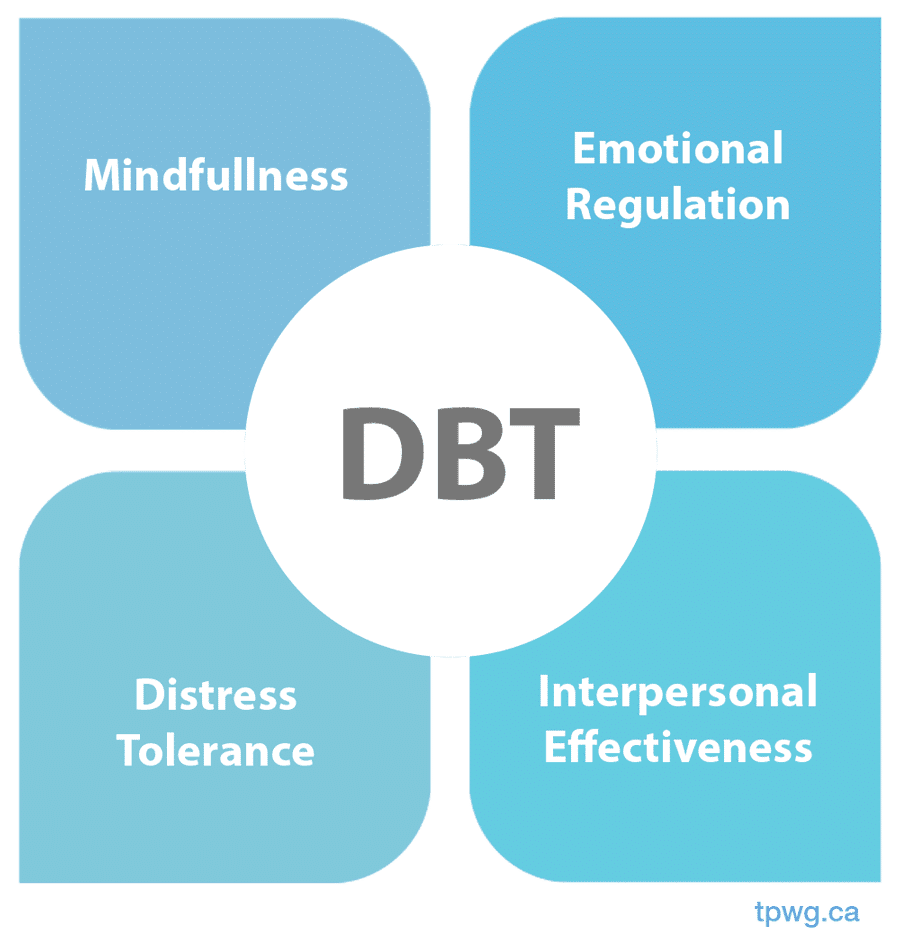Opening Healing Courses: DBT London Uses Specialized Support
Opening Healing Courses: DBT London Uses Specialized Support
Blog Article
Harnessing the Power of Dialectical Practices Therapy (DBT) Solutions for Sustainable Psychological Balance and Improved Relationships
In a globe where psychological health and maintaining healthy and balanced partnerships are important components of a meeting life, the use of Dialectical Behaviour Treatment (DBT) solutions has actually arised as a sign of hope for several individuals. The evidence-based and organized method of DBT supplies a path in the direction of sustainable emotional balance and improved interactions with others.

Recognizing the Core Principles of DBT
Dialectical Actions Therapy (DBT) is founded upon a collection of core principles that underpin its healing strategy to promoting emotional equilibrium and psychological well-being. One of the fundamental principles of DBT is dialectics, which emphasizes the synthesis of apparently opposite ideas to show up at a much more well balanced perspective. This entails acknowledging and approving the contradictions and stress within oneself, leading to a higher feeling of consistency and understanding. Mindfulness is an additional core principle of DBT, concentrating on being totally existing in the moment without judgment. By cultivating mindfulness, people can develop an enhanced recognition of their ideas, habits, and feelings, permitting higher self-regulation and emotional control.

Recognition is additionally important to DBT, emphasizing the relevance of recognizing and approving one's experiences and emotions as legitimate. By including these core principles into therapy, DBT uses a comprehensive and effective technique to advertising psychological health and psychological resilience.
Developing Psychological Guideline Skills
Psychological law skills are important elements of Dialectical Behavior modification (DBT) that make it possible for individuals to effectively handle their emotions and browse tough scenarios with durability. These abilities incorporate the ability to recognize and recognize one's emotions, tolerate distress, regulate extreme sensations, and act according to personal values even when faced with emotional turmoil. Establishing emotional law skills entails learning mindfulness techniques to stay present in the minute, comprehending the triggers that bring about emotional dysregulation, and carrying out coping approaches to regulate psychological reactions.

Enhancing Interpersonal Performance
Improving interaction abilities and cultivating significant links with others are integral facets of developing interpersonal efficiency within the structure of Dialectical Habits Therapy (DBT) DBT instructs individuals how to connect efficiently, browse interpersonal challenges, and establish approaches for fixing disputes in a useful manner.
One trick element of improving social effectiveness in DBT is discovering to acknowledge and take care of feelings in social communications. DBT London. By enhancing emotional awareness, individuals can reply to others in a much more compassionate and understanding method. In addition, DBT stresses the value of exercising mindfulness in social relationships, motivating people to be present in their interactions and completely involve with others
Exercising Mindfulness Techniques
Developing a regular mindfulness technique is important for individuals undertaking Dialectical Habits Therapy (DBT) to cultivate psychological law and improve their interpersonal efficiency. Mindfulness strategies, a core element of DBT, include paying interest to the existing minute without judgment. With mindfulness, people can become more conscious of their ideas, emotions, and physical feelings, allowing them to react to circumstances with higher clarity and control.
One secret mindfulness strategy used in DBT is mindfulness meditation. This practice includes concentrating on the breath or a details item while allowing and recognizing go of any distracting thoughts. By including mindfulness reflection into their daily regimen, individuals can train their minds to remain existing and reduce reactivity to stressors.
Another vital facet of practicing mindfulness in DBT is the principle of extreme approval. Radical approval entails totally welcoming fact as it is, even when it is hard or excruciating. By accepting the present minute without judgment, individuals can lower their suffering and make space for check that positive adjustment.
Applying DBT Methods in Daily Life
Building upon the structure of mindfulness strategies such as meditation and extreme acceptance, individuals can integrate DBT strategies into their every day lives to cultivate emotional balance and enhance their social skills. One effective DBT approach is using dialectics, which urges people to find the happy medium between two opposing emotions or thoughts. By exercising dialectics in daily interactions, individuals can you could try these out find out to verify their own sensations while also taking into consideration the perspectives of others. Another vital DBT ability for everyday life is distress tolerance, which includes finding out how to manage intense emotions without considering dangerous behaviors. This can be achieved with methods such as self-soothing activities, interruption methods, or improving the moment. Additionally, interpersonal effectiveness abilities showed in DBT can help people communicate their requirements assertively, established limits, and maintain healthy partnerships. By constantly applying these DBT techniques in every day life, people can experience sustainable emotional equilibrium and improve their overall health.
Conclusion

Emotional guideline abilities are vital elements of Dialectical Behavior Treatment (DBT) that enable people to effectively manage their emotions and navigate challenging scenarios with strength.Via DBT solutions, individuals can cultivate a deeper recognition of their feelings, acknowledge patterns of actions that add to psychological distress, and obtain functional tools to control their sensations constructively.Establishing a regular mindfulness practice is essential for individuals going through Dialectical Actions Therapy (DBT) to grow emotional law and boost their social efficiency.Building upon the structure of mindfulness strategies such as reflection and radical acceptance, people can integrate go DBT techniques into their everyday lives to foster emotional equilibrium and boost their interpersonal abilities. By recognizing the core concepts of DBT, establishing psychological policy skills, improving social efficiency, exercising mindfulness strategies, and using DBT approaches in daily life, individuals can experience substantial renovations in their total well-being and relationships.
Report this page